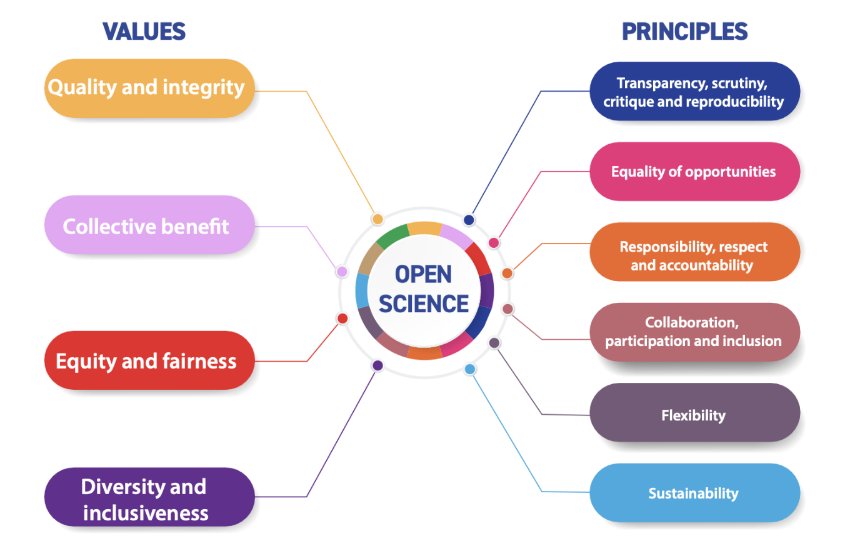
Embracing Transparency and Collaboration: The Values and Principles of Open Science Encouraged in the EU
Embracing Transparency and Collaboration: The Values and Principles of Open Science Encouraged in the EU https://opusproject.eu/wp-content/uploads/2023/09/321-1.png 860 551 Open and Universal Science (OPUS) Project Open and Universal Science (OPUS) Project https://opusproject.eu/wp-content/uploads/2023/09/321-1.pngThe European Union (EU) has been at the forefront of promoting these values and principles in the realm of scientific discovery. Through various initiatives, policies, and funding programs, the EU has fostered an environment where researchers, institutions, and the public can engage in a more open and inclusive scientific ecosystem. In this article, we will explore the core values and principles of open science that are encouraged in the EU.
- Transparency and Open Access
One of the fundamental principles of open science is transparency. In the EU, this is exemplified through policies and mandates that require publicly funded research to be openly accessible. The EU strongly encourages researchers to publish their findings in open access journals or repositories, making scientific knowledge freely available to anyone with an internet connection. This move ensures that research is not locked behind paywalls, benefiting both the scientific community and the broader public.
- Data Sharing and Management
The EU places a significant emphasis on responsible data sharing and management. Researchers are encouraged to share their research data and make it accessible to others. Initiatives like the European Open Science Cloud (EOSC) aim to create a trusted and accessible environment for storing and sharing research data across borders and disciplines. By fostering data sharing, the EU enhances scientific collaboration and accelerates the pace of discovery.
- Collaboration and Interdisciplinary Research
Open science encourages collaboration not only among researchers but also across different scientific disciplines. The EU promotes interdisciplinary research by providing funding opportunities for projects that transcend traditional boundaries. Interdisciplinary research fosters innovation and the development of holistic solutions to complex societal challenges, such as climate change, healthcare, and technology.
- Community Engagement and Citizen Science
The EU recognizes the importance of involving the public in scientific research. Citizen science projects, where volunteers from the public actively participate in scientific investigations, are on the rise. These initiatives not only advance scientific knowledge but also promote science literacy and engagement among citizens. The EU encourages researchers and institutions to involve the public in research processes and decision-making, making science more inclusive and accessible.
- Research Integrity and Ethics
Maintaining the highest ethical standards is paramount in open science. The EU promotes research integrity by emphasizing ethical conduct, responsible research practices, and adherence to strict ethical guidelines. This commitment to research ethics ensures the reliability and credibility of scientific findings, which is crucial for building trust in the scientific community.
- Education and Training
To support the transition to open science practices, the EU invests in education and training programs. Researchers are provided with resources and training to improve their data management, open access publishing, and collaborative skills. By equipping researchers with the necessary tools and knowledge, the EU ensures that open science becomes an integral part of scientific culture.
- Inclusivity and Diversity
Open science in the EU is characterized by its inclusivity and commitment to diversity. Efforts are made to involve researchers from various backgrounds, career stages, and geographic locations. By promoting diversity, the EU enriches the scientific landscape and ensures that open science benefits all, regardless of their background or affiliation.
For the End
The European Union’s dedication to the values and principles of open science has transformed the way research is conducted and shared across the continent. Through transparency, collaboration, data sharing, and engagement, the EU has created a vibrant and inclusive scientific ecosystem that benefits both researchers and society at large. As open science continues to evolve, the EU’s commitment to these values remains at the forefront of scientific progress, driving innovation, and addressing global challenges.
Photo via UNESCO
- Posted In:
- Open Science News




